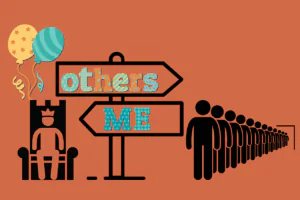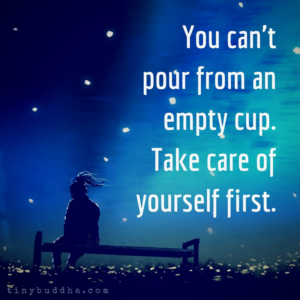
Guest blog by Jordan Spinazzola LSW, ACSW
Dealing with anyone in your life who has a mental illness can be challenging. It is even more challenging when it is your child. It is hard to see your child hurt. That doesn’t really change, even after they have grown to adulthood. So when you have an adult child living with anxiety or depression, it can feel difficult to navigate. You want to know how to support your adult child with anxiety and depression.
Explaining anxiety to someone who has never experienced it is like explaining Russian to someone who has never spoken the language before. It is foreign, it feels uncomfortable, and it is challenging. As a parent, our job is to be patient while we sit on the metaphorical bench with our child and accompany them – young or old – as they experience their emotions. This is where it can become difficult as a parent if you have never experienced depression or anxiety yourself or have had a child or loved one with anxiety or depression. This is new to you and is an area for you to sit and wait to understand.
Symptoms of Anxiety and Depression
Generalized Anxiety Disorder (GAD) is defined as “excessive anxiety and worry occurring more days than not for at least six months, about a number of events or activities.” A person with GAD finds it difficult to control worry and has experienced several symptoms like restlessness, fatigue, difficulty concentrating, irritability, muscle tension, and sleep disturbance. It is important to understand that anxiety does not always make sense and it does not have to for it to be valid for you to experience it.
Major Depressive Disorder (MDD) is “a mood disorder that causes a persistent feeling of sadness and loss of interest.” If you have MDD, you are probably feeling a number of symptoms such as feelings of sadness, emptiness, hopelessness, angry outbursts, irritability, and loss of interest over most activities. Sleep and appetite can be affected which causes a lack of energy. Again, depression does not always make sense as to why you are experiencing it, yet it is very real.
Related Reading: Can Depression and Anxiety Make You Sick?
The Diagnosis Does Not Define Them
Whether your adult child previously had been diagnosed with depression or anxiety as a child or teenager or if they were recently diagnosed, it is important to note that the diagnosis does not define them. It is a part of them but not the whole.
You see your adult child hurting and you probably feel the pull to fix it for them. Remember, even though they are your child, they are an adult who you need to treat as an adult. It is not your job to fix them. You can offer support, though.
And just how do you offer support? Helping your adult child with a mental illness may feel like navigating new territory. Some tips in supporting your adult child with mental illness are:
- Understand your role and boundaries
- Sit on the metaphorical bench with your adult child
- Support, solution or sharing?
- Seek professional support and advice.
Related Reading: The B Word-Boundaries
Roles and Boundaries
As the parent of an adult child struggling with a mental illness, it is key to understand your role in the support team and the boundaries that your adult child has set regarding their treatment. Remember that your child is an adult and while they may need you, they also need you to remember that they are an adult and need to be treated like one. Putting pressure on your adult child to get better will not be helpful and potentially may cause more harm. Asking them about their boundaries to maintain a healthy relationship will be helpful for each of you. When supporting your adult child with a mental illness, it is key to remember that some boundaries may feel uncomfortable because even though they are your child, they are an adult now, deserving of respect of their boundaries, even if you disagree with those boundaries.
Supporting An Adult Child with Anxiety or Depression
Dr. Becky Kennedy refers to life as a garden filled with benches that represent emotions. She discusses how essential it is for us – and especially us as caregivers and parents – to sit on the metaphorical emotion benches to validate emotions. She says by “sitting on the bench” with your child, you encourage them to sit with emotion instead of running away or feeling that certain emotions are scary. This is where helping an adult child with depression and anxiety comes in – especially during moments of heightened emotion. Keep in mind that recovery and living with anxiety and/or depression is a marathon not a sprint. Sitting on those metaphorical benches with your adult child can give them the support needed to sit in discomfort. Learning tools to help regulate yourself during these moments are a key element of supporting your loved one, as well.
helping an adult child with depression and anxiety comes in – especially during moments of heightened emotion. Keep in mind that recovery and living with anxiety and/or depression is a marathon not a sprint. Sitting on those metaphorical benches with your adult child can give them the support needed to sit in discomfort. Learning tools to help regulate yourself during these moments are a key element of supporting your loved one, as well.
Support, Solution, or Sharing
The three S’s is an important phrase I teach clients who are supporting an adult child with anxiety and/or depression. Those three S’s are would you like Support, a Solution, or are you just Sharing? This may make you feel uncomfortable because you want to share your opinion or lived experience; however, this is not the time. When a person asks you for what they need and you give them choices, it empowers them to choose what will be most helpful. Clients have said that this can be very helpful. I have also had numerous caregivers verify that this works and that it makes the person with the mental illness feel safer and more in charge.
Seek Professional Support
When supporting your adult child who has anxiety or depression, it can be very helpful to seek professional support. Unless you are a therapist or mental health professional, this is going to be new territory for you. Navigating it with the help of a therapist can help you maintain healthy relationships by improving communication. This may be your first experience with therapy and that is ok. Therapists will provide tools, skills, and techniques to help you best help your adult child with anxiety or depression.
Remember, you are not alone in helping and supporting your adult child with anxiety or depression. It is not your job to fix them, and it is not your job to take away the pain. It is your job to be patient and to follow their lead while also continuing to have care for yourself. A helpful resource can be NAMI, the National Alliance on Mental Illness, which has support groups for families dealing with mental illness.
If you would rather seek one on one support, have an adult child suffering from anxiety or depression, and live in Illinois, please reach out to me or one of my colleagues at Life Care Wellness for help in navigating this area. We have offices in our Glen Ellyn, Chicago (Jefferson Park), and Sycamore.
Jordan Spinazzola is an associate therapist at Life Care Wellness, a group psychotherapy practice in Glen Ellyn in west suburban Chicago, Illinois. Jordan works with all ages and has a experience with couples and family therapy. She utilizes traditional talk therapy, cognitive behavioral therapy (CBT), strengths-based therapy, mindfulness and motivational interviewing. She has completed training in Eye Movement Desensitization Reprocessing (EMDR) and utilizes it in trauma-focused therapy. Jordan sees clients via telehealth.



